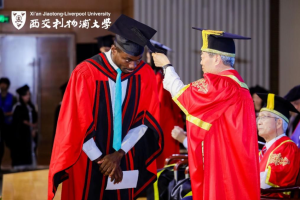CBDC and Banks’ Disintermediation in a Portfolio Choice Model
Organised by: RCE 2 (Emerging Technologies and Innovation)
Time and Date: 14:00-15:30, Tuesday, 29th April, 2025 (Beijing time)
Language: English
Onsite location: BS 4114
Abstract: Would the introduction of a Central Bank Digital Currency (CBDC) lead to lower deposits (disintermediation) and lending in the banking sector? This paper develops a model where households heterogeneous in wealth allocate between an illiquid asset and assets that can be used for payments: bank deposits, cash, and CBDC. CBDC is more efficient as a means of payment and has lower access cost than deposits. Deposits are offered by an imperfectly competitive banking sector which raises deposit interest rates after CBDC introduction to prevent substitution away from deposits to CBDC. We find that there are two opposing margins of impact on the level of aggregate deposits: (1) the intensive margin gain in deposits by richer households increasing their holdings of deposits because of higher interest rates, and (2) the extensive margin loss of deposits among poorer households who switch from deposits to the CBDC. The extensive margin gain in deposits is more likely to dominate (yielding a fall in total deposits) when the mass of poorer households is large and when it is relatively costly to access bank accounts. This tends to be the case in developing and emerging market economies. However, even when the extensive margin loss of deposits dominates and there is disintermediation, the impact on lending is quantitatively small if banks have access to other forms of funding, such as wholesale or central bank financing.
Presenter: Dr. Huifeng Chang, Fudan University
Dr. Huifeng Chang is an Assistant Professor of Economics at the School of Management, Fudan University. Her research focuses on the relationship between financial markets and the macroeconomy, with particular interests in bond markets, financial crises and government interventions, as well as digital currency and banking. She has published in the Journal of Finance. Dr. Huifeng Chang received her M.A. and B.A. in Economics from Peking University and earned her Ph.D. in Economics from the University of California, Los Angeles.







